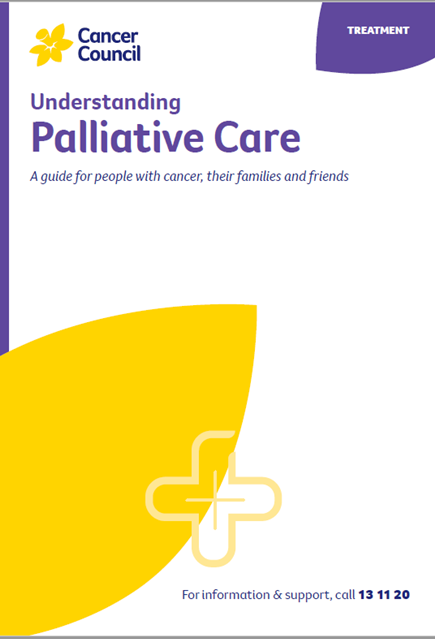- Home
- Acute lymphoblastic leukaemia (ALL)
- Treatment
- Palliative treatment
Palliative treatment for ALL
Palliative treatment can be used at any stage of advanced ALL to improve quality of life. As well as slowing the spread of leukaemia, it can relieve pain, nausea and other symptoms. Many people think palliative treatment is for people at the end of their life; however, it can help people at any stage. Treatment may include chemotherapy and/or radiation therapy.
Palliative treatment is one aspect of palliative care, in which a team of health professionals aims to meet your physical, emotional, cultural, social and spiritual needs. The team also provides support to families and carers.
For more on this, call Cancer Council 13 11 20, see Palliative care and Living with advanced cancer. You can also listen to our podcast series The Thing About Advanced Cancer.
→ READ MORE: Managing side effects of ALL
Watch this short video on how palliative care aims to manage symptoms and improve people’s quality of life without trying to cure the disease.
Podcast: Treatment Options for Advanced Cancer
Listen to more of our podcast for people affected by advanced cancer
More resources
Dr Jonathan Sillar, Haematologist, Calvary Mater Newcastle (clinical review); Dr Scott Dunkley, Haematologist, Royal Prince Alfred Hospital and Chris O’Brien Lifehouse; Sharon Frazer, Consumer; Dr Robin Gasiorowski, Staff Specialist, Haematology, Concord Hospital; Prof Angela Hong, Radiation Oncologist, Chris O’Brien Lifehouse, and Clinical Professor, The University of Sydney; Yvonne King, 13 11 20 Consultant, Cancer Council NSW; Heather Mackay, Clinical Nurse Consultant – Haematology, Westmead Hospital; Katelin Mayer, Clinical Nurse Consultant, Cancer Outreach Team, Nelune Comprehensive Cancer Centre.
View the Cancer Council NSW editorial policy.
View all publications or call 13 11 20 for free printed copies.

